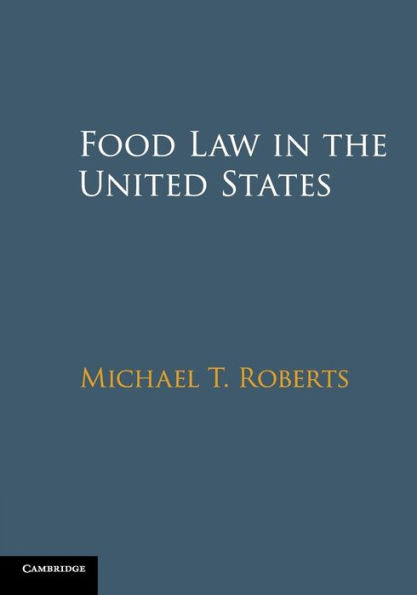Home
Country-of-Origin Labeling for Foods and the WTO Trade Dispute on Meat Labeling
Loading Inventory...
Barnes and Noble
Country-of-Origin Labeling for Foods and the WTO Trade Dispute on Meat Labeling
Current price: $19.95


Barnes and Noble
Country-of-Origin Labeling for Foods and the WTO Trade Dispute on Meat Labeling
Current price: $19.95
Loading Inventory...
Size: OS
*Product Information may vary - to confirm product availability, pricing, and additional information please contact Barnes and Noble
Most retail food stores are now required to inform consumers about the country of origin of fresh fruits and vegetables, fish, shellfish, peanuts, pecans, macadamia nuts, ginseng, and ground and muscle cuts of beef, pork, lamb, chicken, and goat. The rules are required by the 2002 farm bill (P.L. 107-171) as amended by the 2008 farm bill (P.L. 110-246). Other U.S. laws have required such labeling, but only for imported food products already pre-packaged for consumers. The final rule to implement country-of-origin labeling (COOL) took effect on March 16, 2009. Both the authorization and implementation of COOL by the U.S. Department of Agriculture (USDA) have been controversial, particularly the labeling rules for meat and meat products. A number of livestock and food industry groups continue to oppose COOL as costly and unnecessary, and they and the main livestock exporters to the United States-Canada and Mexico-view the requirement as trade-distorting. Others, including some cattle and consumer groups, maintain that Americans want and deserve to know the origin of their foods. Less than one year after the COOL rules took effect, Canada and Mexico challenged them in the World Trade Organization (WTO), arguing that COOL has a trade-distorting impact by reducing the value and number of cattle and hogs shipped to the U.S. market, thus violating WTO trade commitments. In November 2011, the WTO dispute settlement (DS) panel found that (1) COOL treats imported livestock less favorably than U.S. livestock, and (2) COOL does not meet its objective to provide complete information to consumers on the origin of meat products. In March 2012, the United States appealed the WTO ruling. In June 2012 the WTO's Appellate Body (AB) upheld the DS panel's finding that COOL treats imported livestock less favorably than domestic livestock. But the AB reversed the finding that COOL does not fulfill its legitimate objective to provide consumers with information on origin. The Obama Administration welcomed the AB's affirmation of the U.S. right to adopt labeling requirements to inform consumers on the origin of their meat. Participants in the U.S. livestock sector had mixed reactions, reflecting the ongoing heated debate on COOL. A WTO arbitrator set May 23, 2013, as the deadline for the United States to comply with the WTO findings. To comply, USDA issued a revised COOL rule requiring that labels show where each production step (born, raised, slaughtered) occurs and prohibiting the commingling of muscle-cut meat from different origins. COOL's supporters applauded the revised rule for providing consumers with specific and more useful information on origin. Opponents of COOL argue that the revised rule is more discriminatory than the original rule and imposes additional recordkeeping burdens on processors and retailers, and in turn, additional costs on consumers. In July 2013, opponents filed suit to stop USDA from implementing the revised COOL rule, but in September 2013 they were denied their request for a preliminary injunction against the rule. Opponents appealed during 2014, but the courts denied all requests. Canada and Mexico expressed disappointment with USDA's revised rule, and argued that it does not bring the United States into compliance. In September 2013, a compliance panel was formed to determine if the final COOL rule complies with WTO agreements. On October 20, 2014, the panel found that the revised COOL rule altered competition and thus treated imported livestock less favorably than domestic livestock. The panel confirmed that COOL is a legitimate objective, but could not determine if the rule was more trade restrictive than necessary. The parties have 60 days to appeal any of the compliance panel rulings.


















